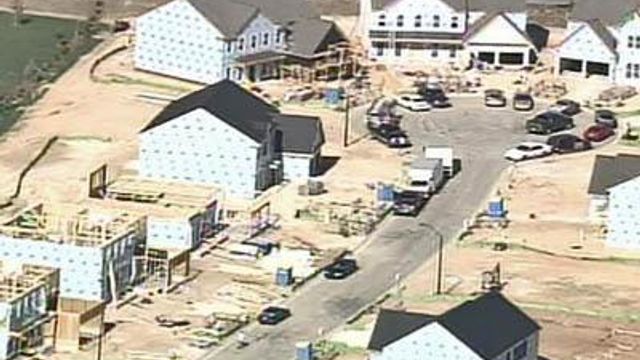Raleigh's Moves Could Slow Growth
The City Council's recent decisions to ban garbage disposals, impose tough water restrictions and consider doubling impact fees on developers could soon begin putting the brakes on the city's growth.
Posted — UpdatedIn the last eight years, Raleigh has added 25 square miles and more than 40,000 dwellings. The number of new housing units represented a 33 percent jump since 2000.
"Our concern is that it's going to give us a negative impact on people wanting to buy a home," said Tim Minton, executive vice president of the Home Builders Association of Raleigh-Wake County. "If all of a sudden, the perception is it's going to cost you more to buy (and you) can't have a garbage disposal, if you've got a house in Johnston (County) and one in Raleigh, you might be sort of wanting to go in that direction."
Councilman Rodger Koopman said the time for Raleigh to rethink how it grows is overdue.
"I know that's a scary conversation, but we are now beginning to see that areas cannot continue to grow unless we're beginning to see that the physical resources are there," Koopman said. "That is a discussion worth having because, at the end of the day, I did not get elected to represent the people that move here. I got elected to represent the people that live here, and the people that live here are saying, 'Whoa. Wait a minute. How is this growth benefiting me?'"
Mayor Charles Meeker agreed that discussions about Raleigh's growth are helpful, but he doesn't see an effort by the City Council to slow growth.
"I don't think it's really a question of slowing the growth, but looking at the quality of it, being sure that we're very careful about our water," Meeker said. "Raleigh alone really can't slow growth because, if we stop something somewhere, the other folks will just go somewhere else in Wake County or in Johnston County or Franklin County. What we can influence is the quality of growth and where it occurs within the city limits.
"I think it's important our community discuss these things," he said. "I understand it gets heated sometimes – that's part of the public process – but in the end, we'll be in a better situation as a community."
• Credits
Copyright 2024 by Capitol Broadcasting Company. All rights reserved. This material may not be published, broadcast, rewritten or redistributed.






